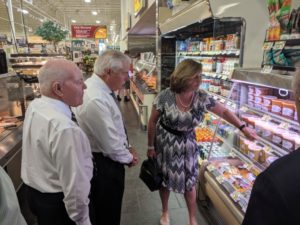Key Issues

NJFC President Linda Doherty explains new federal date labeling guidelines with Chairman Eric Houghtaling (D-11) and Assemblyman Ron Dancer (R-12) of the Assembly Agriculture Committee during a store tour.

NJFC President Linda Doherty explains new federal date labeling guidelines with Chairman Eric Houghtaling (D-11) and Assemblyman Ron Dancer (R-12) of the Assembly Agriculture Committee during a store tour.
